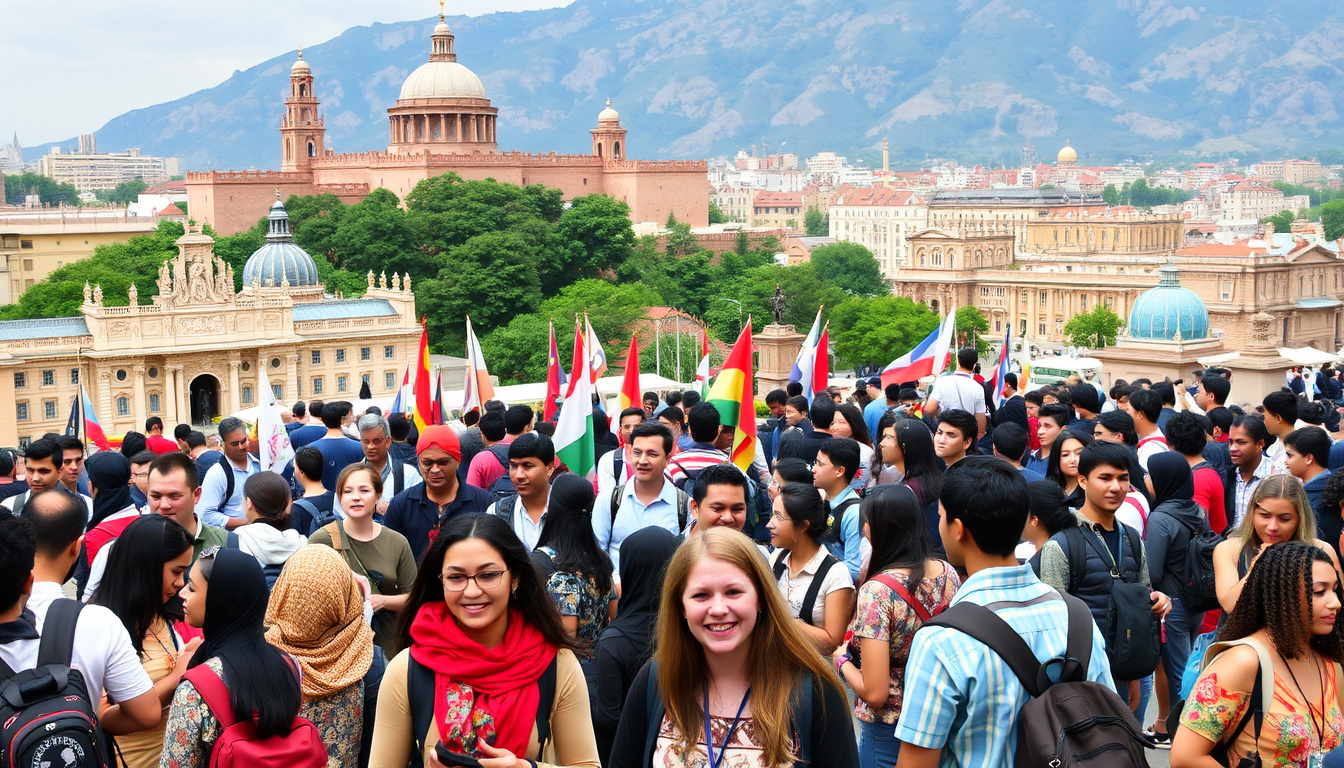
Studying abroad is more than just an academic endeavor; it is a transformative experience that opens doors to new cultures, perspectives, and friendships. As our world becomes increasingly interconnected, cultural diversity in study abroad programs plays a crucial role in shaping global citizens. This blog post explores the significance of celebrating cultural diversity in study abroad programs, the benefits it brings to students, and practical ways to embrace and promote this diversity.
The Importance of Cultural Diversity in Study Abroad
1. Broadened Perspectives
One of the most profound benefits of studying abroad is the exposure to different ways of thinking and living. When students immerse themselves in a foreign culture, they encounter various worldviews, traditions, and lifestyles. This exposure broadens their perspectives, encouraging them to think critically about their beliefs and assumptions.
For instance, a student from the United States studying in Japan may learn about the concept of wa (harmony) and how it influences social interactions and decision-making. Such experiences foster empathy and understanding, essential qualities for navigating today’s globalized society.
2. Development of Interpersonal Skills
Cultural diversity in study abroad programs enhances interpersonal skills that are vital in both personal and professional spheres. Engaging with individuals from various backgrounds helps students develop communication skills, adaptability, and teamwork. These skills are particularly beneficial in increasingly multicultural workplaces.
For example, students participating in group projects with peers from different countries must navigate language barriers and differing cultural norms, cultivating patience and problem-solving abilities. These experiences prepare them to work effectively in diverse teams in their future careers.
3. Personal Growth and Resilience
Studying abroad challenges students to step outside their comfort zones, fostering personal growth. Navigating a new environment, managing homesickness, and overcoming cultural shocks build resilience. Students learn to embrace uncertainty and adapt to change, qualities that are invaluable in today’s fast-paced world.
Moreover, these challenges often lead to increased self-awareness. Students gain a better understanding of their strengths and weaknesses, ultimately leading to greater confidence in their abilities.
The Benefits of Celebrating Cultural Diversity
1. Enhanced Learning Opportunities
Celebrating cultural diversity enriches the academic experience for students. Diverse perspectives in the classroom lead to more robust discussions, innovative ideas, and critical thinking. Instructors can incorporate a variety of cultural viewpoints into their curricula, enhancing the relevance and applicability of course content.
For example, a sociology class discussing global social issues can benefit from the experiences of students from different countries, leading to a deeper understanding of the complexities involved.
2. Networking and Future Opportunities
Studying abroad allows students to build a global network of contacts, opening doors for future career opportunities. Cultural diversity enhances this network by connecting students with peers who have unique insights and experiences. This network can prove invaluable when seeking internships, jobs, or collaborations in a globalized job market.
Furthermore, many organizations prioritize diversity in their hiring processes. Students with experience in culturally diverse environments are often viewed as more adaptable and culturally competent, making them attractive candidates.
3. Lifelong Friendships
The bonds formed during study abroad programs often transcend cultural differences. Students frequently make lifelong friends from diverse backgrounds, enriching their lives and expanding their horizons. These friendships provide ongoing opportunities for cultural exchange and understanding long after the study abroad experience ends.
For instance, a student from Brazil might forge a close friendship with a classmate from South Africa. Their shared experiences and cultural exchanges can lead to a deeper appreciation of each other’s heritage, fostering lifelong connections.
Practical Ways to Embrace and Promote Cultural Diversity
1. Orientation Programs
Study abroad programs can incorporate comprehensive orientation sessions focusing on cultural diversity. These sessions can include workshops on cultural sensitivity, language basics, and local customs, helping students understand and appreciate the cultural nuances of their host country.
2. Cultural Exchange Events
Institutions can organize cultural exchange events where students can showcase their traditions, cuisine, and arts. These events not only celebrate diversity but also encourage students to share their unique cultures, fostering mutual respect and understanding.
3. Community Engagement
Encouraging students to engage with local communities can enhance their understanding of cultural diversity. Programs can facilitate volunteer opportunities or cultural immersion activities, allowing students to interact with locals and learn about their customs and traditions.
4. Inclusive Curriculum Design
Educational institutions should prioritize inclusive curriculum design that incorporates diverse perspectives. Faculty can integrate case studies, literature, and research from various cultures into their courses, enriching the learning experience for all students.
5. Mentorship Programs
Creating mentorship programs that pair local students with international students can promote cultural exchange and understanding. Mentors can guide their peers through the cultural adjustment process, sharing insights and helping them navigate challenges.
Conclusion
Celebrating cultural diversity in study abroad programs is essential for fostering global citizenship, enhancing learning experiences, and building a more interconnected world. As students immerse themselves in different cultures, they not only gain valuable academic knowledge but also develop crucial interpersonal skills, resilience, and lifelong friendships. By embracing and promoting cultural diversity, educational institutions can create enriching study abroad experiences that prepare students to thrive in an increasingly diverse and globalized society.
In a world where cultural understanding is more important than ever, studying abroad offers a unique opportunity to learn, grow, and celebrate the richness of human diversity. Whether it’s through sharing a meal, engaging in thoughtful conversations, or exploring new perspectives, the journey of cultural exchange continues to shape and inspire future generations of global citizens.




